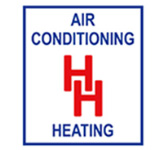
We spend a lot of time indoors. As a matter of fact, the Environmental Protection Agency (EPA) has determined being within a building comprises 90% of our days. Although, the EPA also says your indoor air can be three to five times more polluted than outside your home.
That’s because our houses are securely sealed to enhance energy efficiency. While this is great for your utility costs, it’s not so fantastic if you’re a part of the 40% of the population with respiratory allergies.
When outdoors ventilation is restricted, pollutants including dust and volatile organic compounds (VOCs) can get stuck. Consequently, these pollutants might worsen your allergies.
You can boost your indoor air quality with fresh air and regular housework and vacuuming. But if you’re still having issues with symptoms when you’re at home, an air purifier might be able to provide assistance.
While it can’t remove pollutants that have landed on your furniture or carpeting, it can help purify the air moving across your home.
And air purification has also been scientifically proven to help lower some allergic symptoms, according to the American College of Allergy, Asthma and Immunology. It could also be useful if you or a family member has a lung condition, including emphysema or COPD.
There are two options, a portable air purifier or a whole-home air purifier. We’ll go over the differences so you can learn what’s correct for your residence.
Whole-House Air Purifier vs. Portable Air Purifiers
A portable air purifier is for one room. A whole-house air purifier works with your home comfort unit to treat your complete home. Some models can clean on their own when your heating and cooling unit isn’t on.
What’s the Best Air Purifier for Allergies?
Look for an option with a High Efficiency Particulate Air (HEPA) filter. HEPA filters are used in hospitals and offer the most comprehensive filtration you can find, as they catch 99.97% of particles in the air.
HEPA filters are even more powerful when installed with an ultraviolet (UV) germicidal light. This mighty blend can eliminate dust, dander, pollen and mold, all of which are standard allergens. For the ultimate in air purification, think over a unit that also has a carbon-based filter to reduce household vapors.
Avoid using an air purifier that makes ozone, which is the top element in smog. The EPA cautions ozone could irritate respiratory troubles, even when released at small concentrations.
The Allergy and Asthma Foundation of America has made a checklist of questions to think over when buying an air purifier.
- What can this purifier remove from the air? What doesn’t it extract?
- What’s its clean air delivery rate? (A better figure means air will be freshened faster.)
- How often does the filter or UV bulb need to be switched]? Can I complete that on my own?
- How much do spare filters or bulbs cost?
How to Lessen Seasonal Allergy Symptoms
Want to have the {top|most excellent|best] outcome from your new air purification equipment? The Mayo Clinic recommends doing other steps to reduce your exposure to problems that can cause seasonal allergies.
- Stay indoors and keep windows and doors shut when pollen counts are elevated.
- Have other family members mow the lawn or pull weeds, since this work can worsen symptoms. If you have to do these jobs on your own, consider trying a pollen mask. You should also shower right away and put on clean clothes once you’re finished.
- Avoid stringing up laundry outside your home.
- Use the AC while indoors or while you’re on the road. Consider using a high efficiency air filter in your home’s HVAC unit.
- Balance your home’s humidity levels with a whole-house dehumidifier.
- Hardwood, tile or linoleum are the ideal flooring types for reducing indoor allergens. If your house has carpet, use a HEPA filter on your vacuum cleaner.
Let Our Specialists Take Care of Your Indoor Air Quality Necessities
Want to move forward with adding a whole-house air purifier? Give our experts a call at 717-220-4502 or contact us online to get an appointment. We’ll help you choose the best system for your house and budget.




